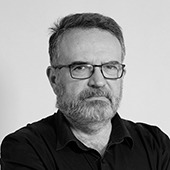The Spanish Church is stalked by a crisis of the faithful. The number of people who attend mass on Sundays is gradually decreasing, and the roots of the sacraments are becoming weaker. According to figures from the Spanish Episcopal Conference (CEE), 8.4 million people regularly attend the parish, a proportion that suffers a progressive decline. Those who comply with the Sunday precept are the survivors of an era that turns its back on the afterlife and that lives for hedonism and material goods.
The country is becoming less Catholic. The proportion that define themselves as such has plummeted from the 90.5% noted by the Center for Sociological Research (CIS) in 1978 to 56% in July 2022. Religion has been relegated to the sacristy, it cannot be present in public life or in the speeches of politicians, unless it plays an identity factor. The majority of Spaniards do not believe in hell, miracles or Adam and Eve, according to surveys. Despite the Catholic feeling of half of the Spanish population, the identification is more cultural than doctrinal, since everyday life is no longer analyzed from a religious perspective.
The CIS reveals that if agnostics, indifferents, atheists and non-believers are added, the resulting proportion rises to 39.5%, a high figure for a country that half a century ago claimed to be the spiritual reserve of the West.
For Vicente Esplugues, priest of the parish of Our Lady of the Americas (Madrid), the pandemic has reduced attendance at the temples. The resistance to going to church, logical at a time when covid was spreading rapidly, tends to consolidate. «Many older people have developed a psychosis, a phobia of the collective. The children dissuade the parents so that they desist from going to mass for fear of contagion, ”says Esplugues.
gradual process
However, secularization comes from afar. The priest distinguishes three phases in this long period of de-Christianization. A first milestone occurred with the death of Franco, continued with the entry of Spain into the European Union and was accentuated well into the 21st century, when the scandal of clerical pedophilia caused a crisis of credibility in the Church. All of this, together with the emergence of new creeds, such as Eastern spirituality and the religions that immigrants have brought with them, has conspired so that the Spanish Catholic Church has lost its monopoly on the faith.
In the pastoral guidelines approved by the episcopate for the five-year period 2021-25, the bishops attest that “although a large number of Spaniards manifest themselves as Catholics”, participation in ecclesial life is “in many cases sporadic”.
The Church carries a bad image and is seen as a “reactionary and unproactive institution.” This is how it appears in the summary document of the synodal assembly, held in June, a text in which the laity carry out an exercise in self-criticism. «We observe that the liturgy (…) is lived in a cold, passive, ritualistic, monotonous, distant way». This desertion, which never occurs en masse, but very slowly, can be seen in the sacraments, which are languishing. Barely 29% of the children born in Spain in 2020 were baptized (a total of 100,222). And only 12,679 couples, 14% of those who got married, did so by celebrating the canonical marriage.
Francesc Núñez, professor of Arts and Humanities at the Open University of Catalonia (UOC), emphasizes that religious values clash squarely with the contemporary mentality: “The religious option poses a commitment and requires a series of attitudes and actions that oppose to the interests of the modern individual, who seeks immediate satisfaction and pleasure.
The hollowing out of rural Spain contributed a great deal to the “paganization” of the country, a phenomenon that is most ingrained in Madrid, Catalonia and the Basque Country, while in Andalusia a sustained popular religiosity resists thanks to brotherhoods and brotherhoods.
Spaniards dislike being admonished and scolded from the pulpit. Religious disaffection is rooted in a mindset that is fed up with being instilled with guilt based on sin. Domingo Guerra, a priest in El Paso (La Palma), is hurt that popular religiosity, based on custom and tradition, lacks depth. “With current values, people have a very bad time when their behavior is corrected or they are told what to do. Society lives on entertainment, fashion, parties and alcohol. It is not that we have stopped believing, it is that we have kept God in the trunk of memories”, argues Guerra.

